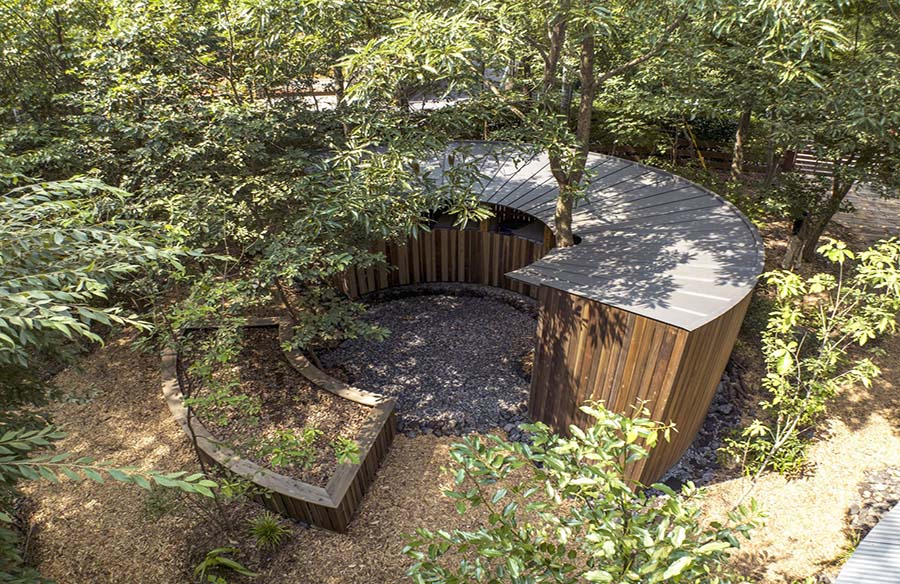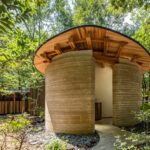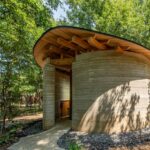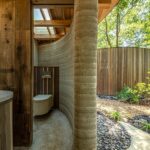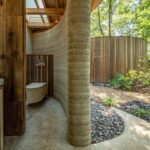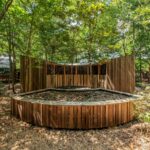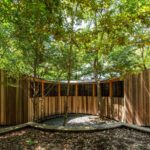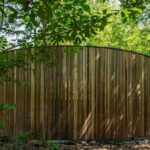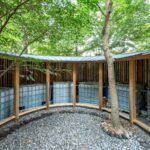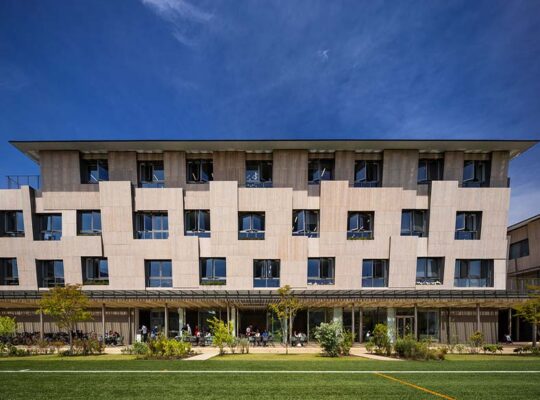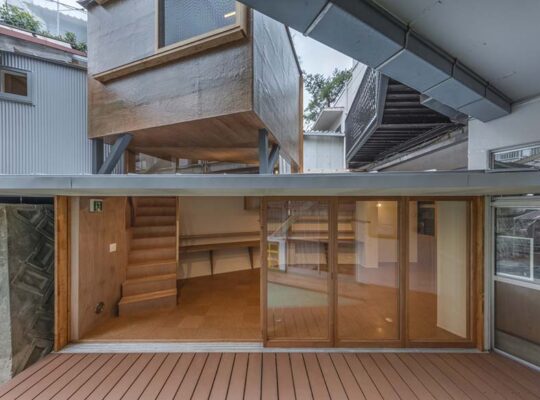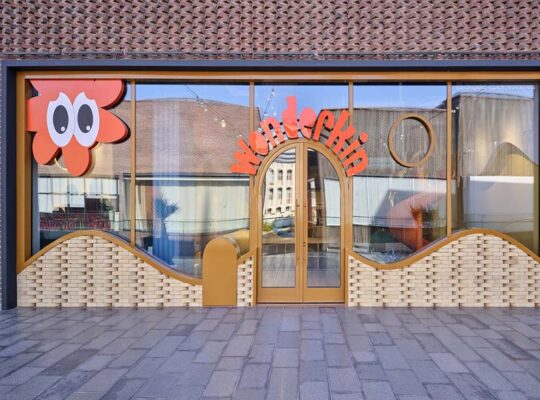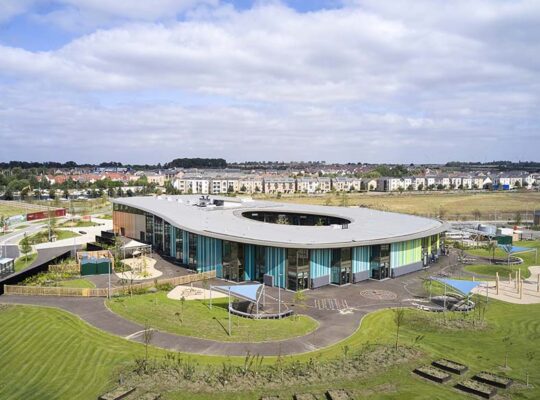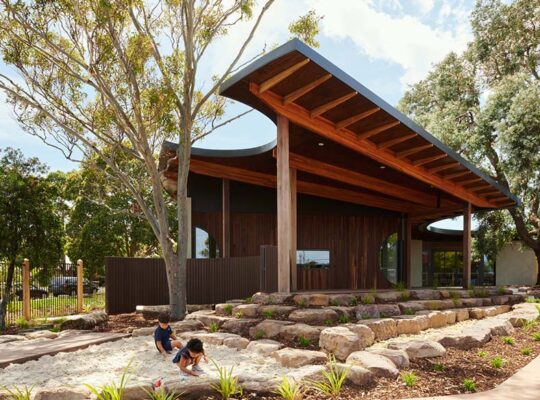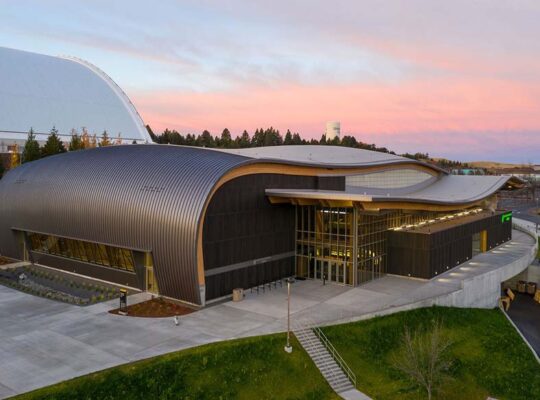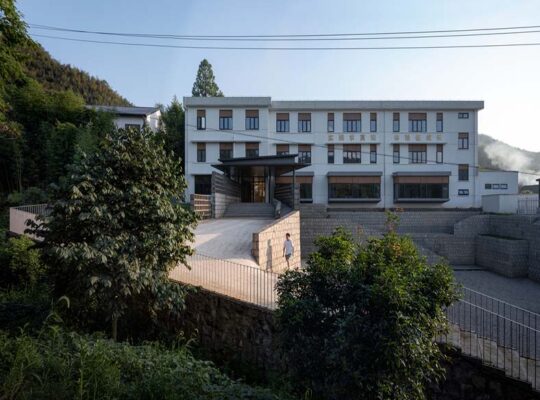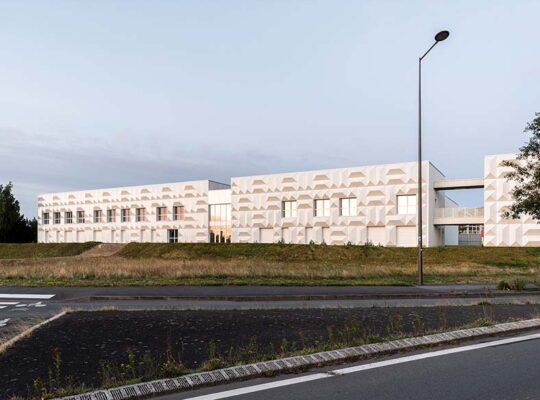Introduction
Situated within the Oak Forest and serving as an integral part of the headquarters of Ishizaka Corp, TOILETOWA W.C. is not just a restroom facility but a testament to environmental consciousness and regeneration. Designed by Tono Mirai Architects, this innovative structure embodies the concept of circularity, emphasizing the interconnectedness between human activities and the natural environment.
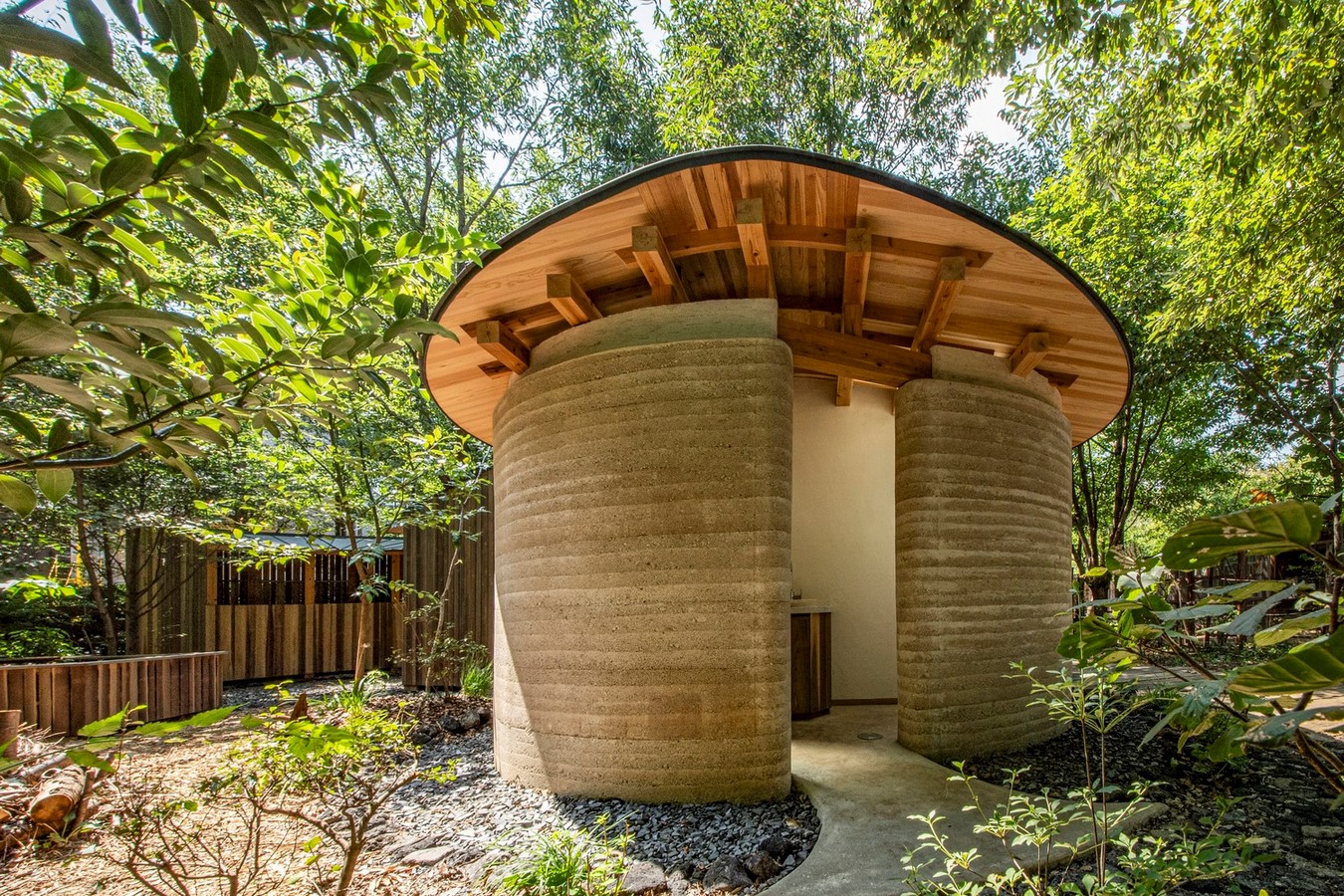
Architecture and Purpose
TOILETOWA W.C. is more than just a toilet; it serves as an environmental education space dedicated to promoting sustainable practices and waste reduction. Built using recycled materials and innovative technologies, it stands as a model for future waste-free and recycling-oriented societies.
Design Features
The architecture of TOILETOWA W.C. is characterized by a wooden construction, featuring a circular rammed earth wall made of recycled soil developed by Ishizaka Corp. The interior walls and floors are crafted from recycled materials such as soil, wood, and glass, while hand-carved wooden elements add to the aesthetic appeal.
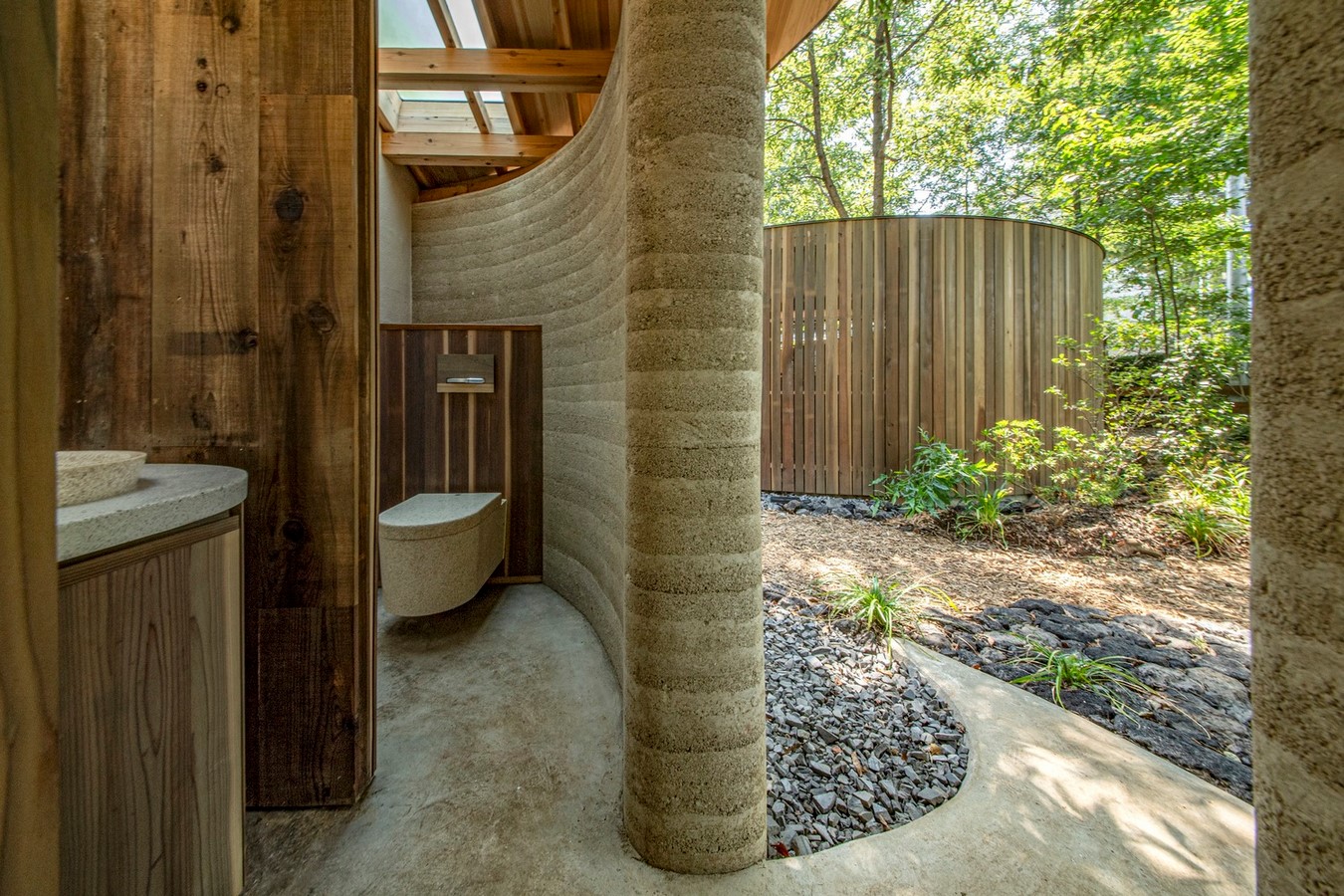
Environmental Impact
One of the key features of TOILETOWA W.C. is its closed-loop system for wastewater management. Toilet wastewater is fully recycled and reused, serving as agricultural water to nourish surrounding garden crops. Additionally, natural materials surrounding the building contribute to soil regeneration, creating a vibrant and sustainable ecosystem.
Technological Innovations
The building incorporates cutting-edge technologies, including a combined fermentation system developed by Dr. Yasuhide Takashima. This biotechnology treats and purifies wastewater, resulting in water that is odorless and clear enough to drink. The enzyme water produced in this process activates the soil and enhances crop productivity, further contributing to environmental sustainability.
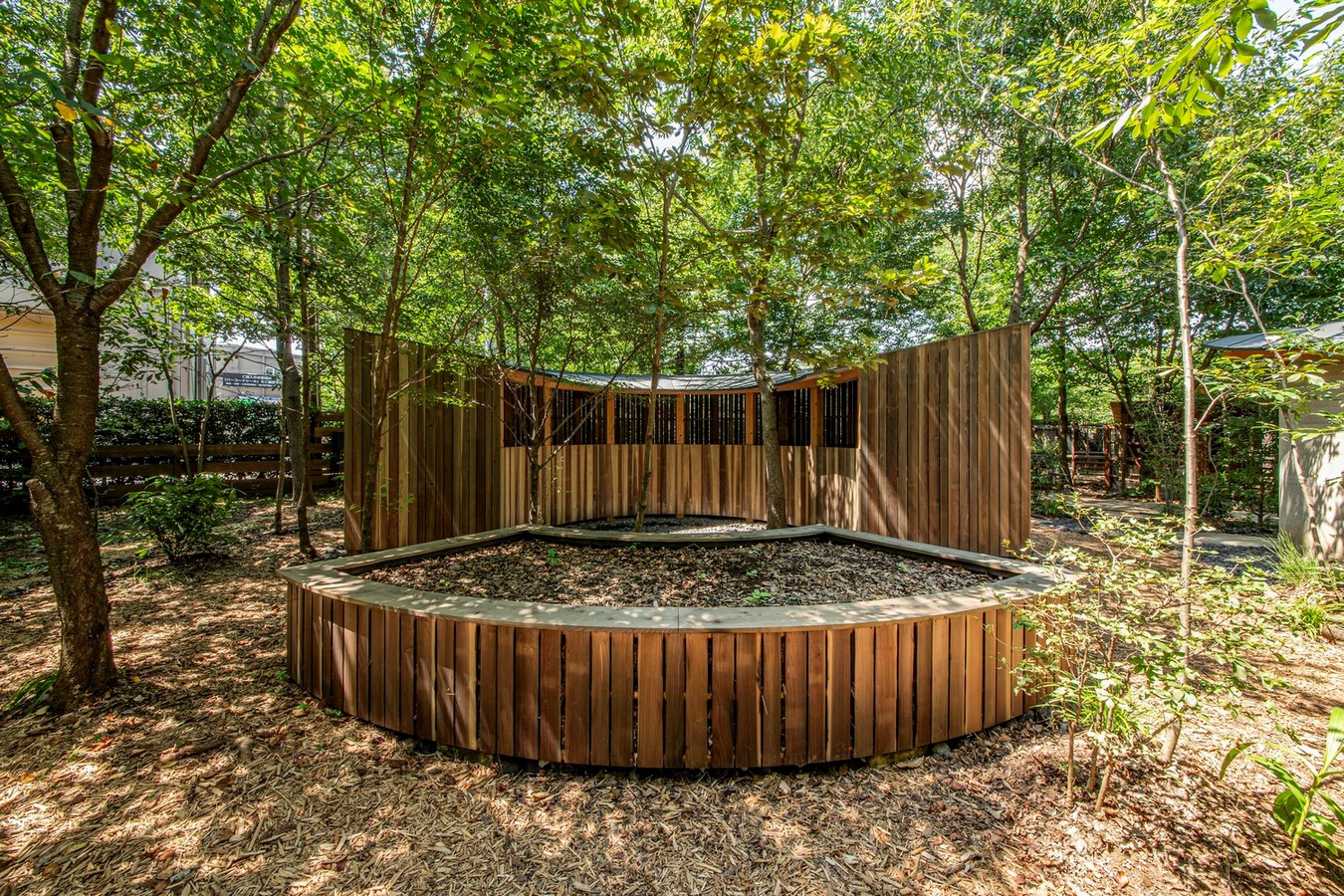
Earth Regeneration
In addition to its architectural design, TOILETOWA W.C. plays a vital role in regenerating the surrounding forest and soil. Through a comprehensive earth regeneration project, including the burial of plant-derived materials and the use of recycled crushed stone tiles, the soil’s natural functions are revitalized, leading to improved drainage and a refreshed forest ecosystem.
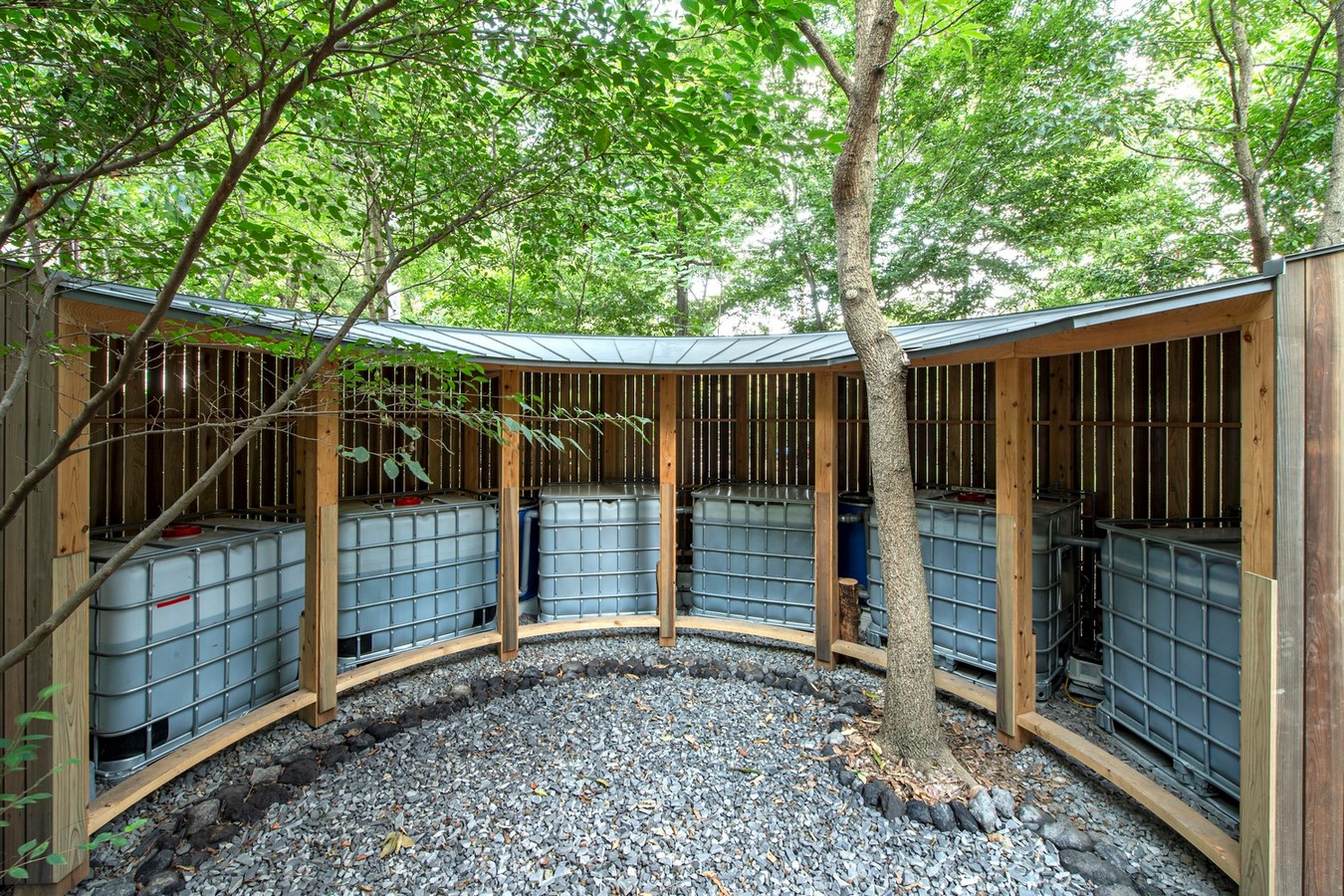
Conclusion
TOILETOWA W.C. stands as a beacon of sustainability and innovation, demonstrating how architecture can serve as a catalyst for positive environmental change. By embracing circular design principles and harnessing the power of technology, this unique structure embodies the ethos of regeneration, paving the way for a more harmonious relationship between human activity and the natural world.
